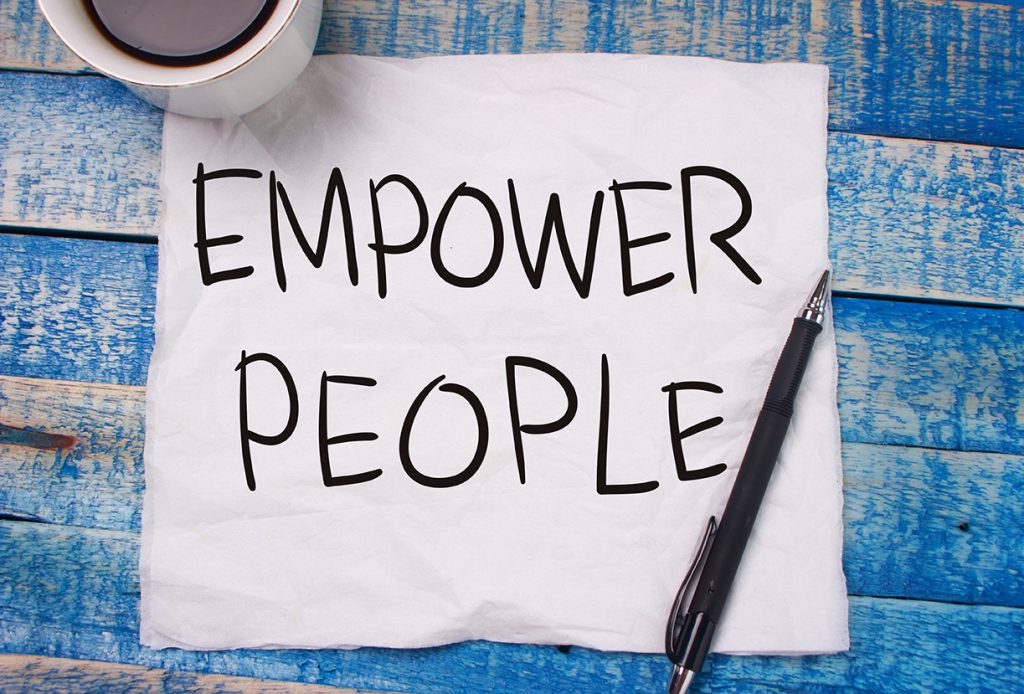There’s a lot of talk about empowering employees, but it often seems more like a feel-good buzzword for organizations rather than a linchpin of stellar performance.
Earlier this fall, I had the opportunity to attend a leadership seminar in Washington D.C., which was presented by the McChrystal Group for board members of Kinexus, an economic-development nonprofit.
Leadership is one of my favorite topics, and this experience was highly motivating, beginning with the caliber of people behind it. Founded by Stan McChrystal, a retired U.S. Army general, the McChrystal Group focuses on improving the performance of organizations. Its staff is comprised of a diverse group of professionals from the military, intelligence community, academia and private sector. Among the key speakers were three women — a former CIA operative, a retired U.S. Army colonel, and a Secret Service agent — all whom had amazing stories and were truly inspiring examples of leadership.
During the two-day workshop, the McChrystal Group took us through its “team of teams” approach, which is based on four pillars: common purpose, culture of trust, shared consciousness and empowered execution. All four resonated with me and reinforced what we espouse in our educational offerings at the Edward Lowe Foundation. In particular, the idea of empowered execution really hit home.

Historically, organizations try to control power by doling out information and rendering top-down decisions. Yet the McChrystal Group takes a different stance: that decentralizing decision-making and sharing knowledge is power, something that is especially important in complex, fast-changing environments. In the workshop, we took this broad theme and went through it step by step, looking at not only what empowered execution meant and why it was important, but how to actually do it. This involves:
- Shared ownership — people understand their roles and feel that they have a direct impact on the success of the organization. To me, passion plays an important role here. When you have people who are passionate, it’s a lot easier to empower them. People have to feel strongly about the purpose of what they’re doing.
- Guardrails — people have the authority, autonomy and support for success. When it comes to support, I think it’s also important for leaders not to overreact when your team members take risks and it doesn’t work out. A lot of people of fail. As a leader you have to be comfortable with that.
- Accountability — results are evaluated and responsibility is distributed appropriately. Accountability is the intentional piece of empowerment that allows you to measure success. And it’s a two-way street. As the leader, are you meeting with your team on a regular basis? Are you having enough conversations, giving them the right resources and appropriate motivation? Are you walking the talk?
I recently caught up with Todd Gustafson, Kinexus’ CEO, and we compared takeaways from the workshop. He made an interesting point about shared ownership: Although leaders may feel that relinquishing some control makes them more vulnerable, it’s actually liberating. “When people have decision-making authority, they often believe they own it — that if they screw up, they’re the only ones who screwed up,” he explains. “This framework says you’re responsible, but you’re not the only one responsible. It’s the team.”
He views “guardrails” as a decision-making space — one that enables leaders to distribute responsibility and accountability. “Leaders establish what success looks like and why it’s important, but then let their people decide how it happens.”
I was already a big fan of the empowerment and allowing people to manage their respective roles in the organization, but the workshop has reenergized me to work harder at putting this into practice. It also awakened me to how important the trust factor is to making empowerment work. Without trust, it’s hard for individuals to be proactive. Deep bonds must be developed so individuals know that when they go out to execute an assignment, fellow team members will have their backs.
Todd agreed: “You can’t have empowered execution unless you have trust. And you can’t build trust unless you’re communicating and sharing information. In the 21st century, successful organizations must be adaptable and in order to be adaptable, everyone has to be on the same page. Only then can you distribute responsibility and accountability through the guardrails and have empowered execution.”
Published 12/19/2018
